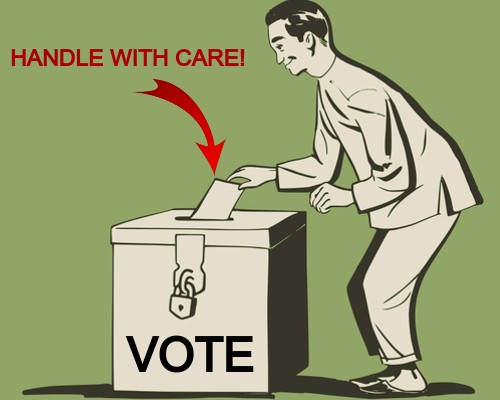
“If voting could change anything,” Robert S. Borden wrote in 1976, “it would be made illegal.” That’s just one variation of a claim enjoying continuous popularity — and common misattributions to Mark Twain, Phillip Berrigan, Emma Goldman and others — among the politics-skeptical commentariat.
It’s popular because it embodies a self-evident truth. Libertarian podcaster Tom Woods put a finer, more foreign policy specific, point on it: “No matter who you vote for, you get John McCain.”
Even after so-called “change” elections, policy shifts tend to be minor and occur at the margins, no matter how revolutionary and game-changing they may sound.
It’s always about raising or lowering income tax rates, never about getting the government’s hands out of our pockets.
It’s always about tweaking, never eliminating, government control of healthcare.
It’s always about “managing” international trade with tariffs and regulations to supposedly benefit domestic firms, never about getting out of trade’s way so as to maximize prosperity for everyone.
It’s always about which “allies” to support or “enemies” to attack abroad, and how generously or violently, never about how to wind the war machine down completely and get the US government back to minding its own business.
None of those results are your fault because you voted for the “wrong” candidates.
Nor, for the most part, is it really the fault of the particular candidates themselves, though it might feel that way.
Remember when many Americans voted for Barack Obama in 2008, convincing themselves he was a “peace” candidate? Heck, he may have even believed that himself. But he turned out to be, per Woods, mostly John McCain, keeping the US in Iraq and Afghanistan and embroiling it in (among other impending wars) Libya, Syria, and Ukraine.
Whatever Obama really wanted to do, he found himself a figurehead strapped atop a very large machine with controls — steering wheel, gear shift, accelerator, brake pedal — disconnected from the engine, transmission, throttle or brakes. The horn worked quite well, and he could and did blow it loudly, but that was about it.
If you’re discouraged, I’m doing my job well here. No matter how hard you vote, you’re really just one of millions of judges in a beauty pageant.
Sure, someone will get a bouquet of roses and a fancy sash before embarking on a tour of pep talks, but no matter how well they did in the evening gown or swimsuit competition, none of their gum-flapping about world peace and mutual understanding in the interview section will result in world peace or mutual understanding.
The point of these competitions is to keep the sponsoring organizations going with maximum donations, ad revenues, etc.
The contestants, winners, and fans being made to feel they’re part of something bigger themselves by watching, are mere means to those ends.
Ditto politics. Politicians and voters are just means to the state’s built-in end of, as philosopher Anthony de Jasay put it, maximizing its own discretionary power.
Vote? Sure, why not? But don’t convince yourself you’re making an earth-shaking difference by doing so.
Thomas L. Knapp (Twitter:@thomaslknapp) is director and senior news analyst at the William Lloyd Garrison Center for Libertarian Advocacy Journalism (thegarrisoncenter.org). He lives and works in north central Florida.
PUBLICATION/CITATION HISTORY
